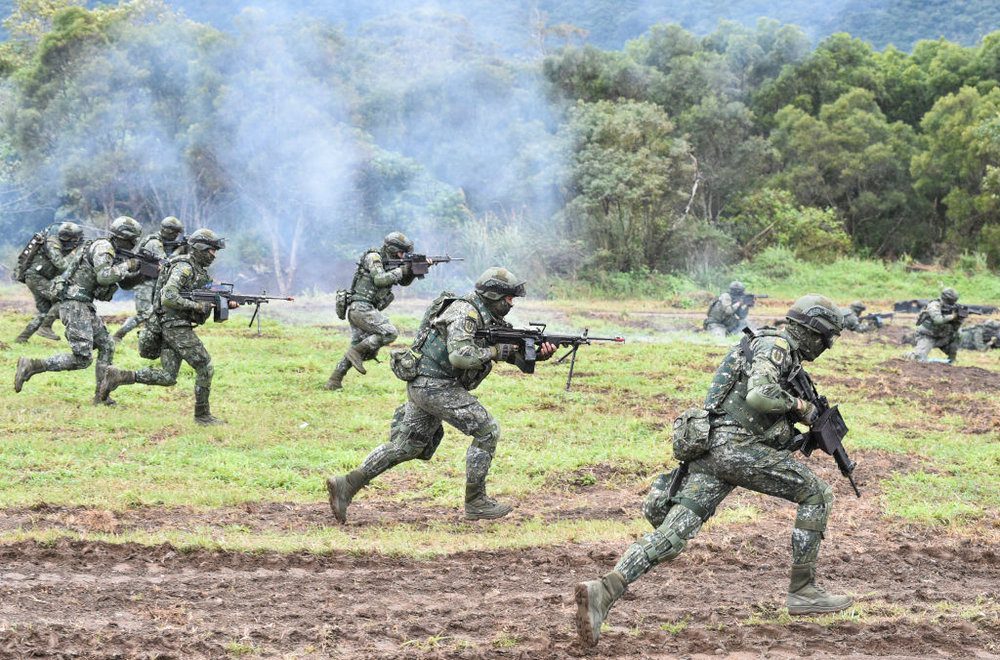Should the United States Go to War with China if Taiwan is Attacked?

Rep. Ted Yoho had a PR nightmare this week after reportedly calling Rep. Alexandria Ocasio-Cortez some ungentlemanly terms. Though this is the controversy du jour, we should not lose sight that actual policy is more important than sound bites. Yoho recently announced plans to submit legislation this week for the “Taiwan Invasion Prevention Act” that would commit the United States to war against China if Beijing attacks Taiwan. Such a proposition has long been popular in the Beltway. Before tying the United States to Taipei’s fate, however, a closer analysis is warranted.
The most fundamental starting point of any discussion of potential agreement that could commit our country to war is examine how it affects our interests—namely, our national security. If Taiwan were attacked, would it result in a direct threat to America? If we committed to the defense of Taiwan, what benefit does the U.S. gain that is commensurate with the enormous risk? The answers to these questions are paramount.
It is helpful to look at other security relationships to compare the cost/benefit calculation we have previously concluded were in our interest. If Germany were to be attacked by Russia, for example, we are treaty-bound to come to their aid (critically, pending an Article 11 provision that requires approval through each nation’s “constitutional process”–i.e., Congress–to approve first); if Russia attacked us, Germany is treaty bound to come to our aid. Taiwan is not a formal ally and there is presently no discussion of any responsibility Taiwan would have to the United States.
Regardless of what is intended, should the United States extend this defense guarantee to Taiwan, it will have the effect of giving, free of charge or obligation, the United States Armed Forces to the government of Taiwan as an extension of their own defense against China. And that might not be the worst of it for our country.
There would likely be no dispute from any American that we affirm and endorse the prospect that the people of Taiwan ought to be free, deserve to determine their own form of government, and above all to decide whether it is in their interests to unify with China. But what price should America be asked to pay to underwrite the freedom aspirations of another country?
Any conflict against China over Taiwan would result in American service men and women being killed, likely in large numbers. China’s military has been built over the past two decades specifically to deter the U.S. from attacking them–via anti-access, area denial (A2/AD)–but if deterrence fails, to build a defense force that would be able to sink our ships, knock out our satellites, and shoot down our fighters from great distances; if it ever came to a ground war, they have more than 375 million military-aged males from which to draw for their Army.
China attaches great national importance to “reunifying” Taiwan. It is only 100 miles from its shores (it is more than 7,500 miles from the United States). They would likely be willing to pay an enormous price to claim the island. Because of our vast global military obligations elsewhere around the globe, it is unlikely we would have the force available to defeat a committed Chinese attack, and in any case it would be a logistics nightmare to try and supply such a force over so many thousands of miles.
Even if we were somehow able to prevent China from capturing the island, the cost to us in losses would likely be staggering, and then perhaps worst of all, we would be obligated to occupying and continuing to defend Taiwan into perpetuity, likely decades, at an even more staggering cost. With the cost already imposed on us from COVID-19, we’re going to have reduced defense budgets whether we want them or not; having to permanently garrison Taiwan with large numbers of troops would quite literally bankrupt our nation.
Though Yoho was initially hailed as a more libertarian member of Congress, and even introduced a resolution in 2015 that would have reined in the president’s warmaking powers, the proposal to use U.S. troops for Taiwan’s defense is not characteristic of outside-the-box thinking championed by political renegades, but instead comes from the worst pages of the establishment’s playbook. Instead, the best way for America to help Taiwan would be to enable them to build an A2/AD defensive bubble of their own to deter China. But we must ensure our security first and foremost. Committing ourselves to a war against China for the benefit of another government would be a tremendous mistake because the cost to us could be a lost war, or a victory so expensive it bankrupts us and puts our own security in peril.
However you look at it, extending security guarantees to Taiwan is not in America’s interests.
Daniel L. Davis is a Senior Fellow for Defense Priorities and a former Lt. Col. in the U.S. Army who retired in 2015 after 21 years, including four combat deployments. Follow him @DanielLDavis1.
Comments